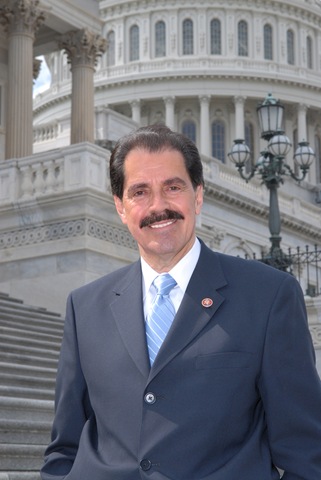Over a long series of blog posts, I’m going to pick apart the 2008 Republican Platform and respond to it, one or several sections at a time. I won’t be going in order, though, and some statements may be omitted from rebuttal if they are general or introductory statements. Some parts I know I will be stating agreement, while in others I will be stating opposition.
You can find a copy of the Republican platform at the RNC web site.
Now if you’re a Republican and you’re pissed that I’m going to be doing this, don’t worry, I’ll also go over the 2008 Democratic platform as well. To begin with the Republican platform, I’ll start with a topic I’ve yet to address on this blog: "traditional" marriage.
* * * * *
On page 53 of the Republican platform, you’ll find the Republican party’s idea of marriage. Now before I begin rebutting this, let me make this clear that I will not be openly discussing gay marriage or "marriage equality". I will only be responding to the statements made, and such will be the same in subsequent articles.
Amending the Constitution
Because our children’s future is best preserved within the traditional understanding of marriage, we call for a constitutional amendment that fully protects marriage as a union of a man and a woman, so that judges cannot make other arrangements equivalent to it.
One thing I find astonishing about this paragraph is how the Republicans have contended that Democrats want to stifle debate. There is no greater way to stifle debate on a topic than to ratify a strictly-worded Amendment to the Constitution of the United States. Republicans don’t like the idea of homosexuals marrying, and they don’t like the idea of polygamy. Great, I understand that being their point of view.
However amending the Constitution is not the way to go on this. It stifles debate immediately and pretty much permanently, assuming of course that there is support not only in Congress but also in the state legislatures to ratify the amendment to begin with. I find the notion of pushing for a Constitutional amendment cowardly.
Plus they say that our children’s future is "best preserved" when there is a "traditional" family. Unfortunately there isn’t much counter-data that might shine light on the potential fallacy of this notion, but something tells me that if a general loving household, whether it be a traditional family or not, is deemed more important through actual research and data, the Republican party won’t waver from this belief.
* * * * *
Children in the household
Republicans recognize the importance of having in the home a father and a mother who are married. The two-parent family still provides the best environment of stability, discipline, responsibility, and character.
This statement is incomplete as it says nothing of the quality of the people raising the child. It doesn’t matter if the child is raised in a home with a married father and mother if the father and mother fight, yell, or are otherwise disrespectful toward each other. Tensions between parents do not reflect well on the child and may have adverse effects on the child’s physical and mental health.
Now one could say that it is implied that the child be raised in a loving household with two parents who are respectful toward each other and are committed parents, but if their opinion is for the child to be raised in a household with two parents who are loving and respectful toward each other, they should say it plainly.
When it comes to the "protection of marriage", the focus seems to always be about children. Why is there this presumption that married couples have children? Yes, okay, most marriages do result in, or result from, children, but not all do. Many couples do remain childless by choice, and that number is rising. To borrow a question asked during the "Prop 8 trial", should we nullify childless marriages? Should couples be given a certain period of time after their wedding day to have or adopt a child or risk nullification? It wouldn’t surprise me if there are people who do believe this.
While a focus on children is understandable, it shouldn’t be central to "preserving traditional marriage". The focus should always first be on the couple getting married. Only if children actually come into the picture should they gain focus, but no sooner.
* * * * *
Defense of Marriage Act
A Republican Congress enacted the Defense of Marriage Act, affirming the right of states not to recognize same-sex "marriages" licensed in other states. Unbelievably, the Democratic Party has now pledged to repeal the Defense of Marriage Act, which would subject every state to the redefinition of marriage by a judge without ever allowing the people to vote on the matter.
Believably the Democratic Party does oppose the Defense of Marriage Act, as it so plainly states in their 2008 platform (page 52). And this law didn’t "affirm" a right of the states to not recognize these marriages, it created that right. And as same-sex marriage laws loosen overseas, this law also tells potential immigrant same-sex couples to not bother coming to the United States.
The Defense of Marriage Act made default the status of same-sex marriage recognition between States as not recognized. While the Act doesn’t stifle a State’s ability to say "we’ll recognize same-sex marriages", as some have, the default should not be "not honored". Instead, absent a State’s laws to the contrary, the default should have been recognition of the marriage with the ability for the State to voluntarily say "No".
* * * * *
Restricting appellate review
We also urge Congress to use its Article III, Section 2 power to prevent activist federal judges from imposing upon the rest of the nation the judicial activism in Massachusetts and California.
Again, this is about stifling debate in the Courts. Basically, it says that they want their way, and they don’t want the question of whether laws like Proposition 8 violate the Constitution to be heard by Federal courts. Again, this is also a cowardly tactic.
This also presumes that the judge or court who hears the case will be "activist", which basically means the judge will rule against what they want, and so to prevent the "damage" from going any further than it already has, they want to stifle debate on the topic and prevent any appellate judicial review. Wow.
The Republican party has campaigned themselves to be about personal and individual freedom, and what is freedom without the ability to decide for yourself who you will marry? Further what is freedom without the ability to petition a court for a review of a ruling against you?
Is this really a party that is about freedom? Doesn’t sound like it.
* * * * *
Marriage and Divorce laws
We also encourage states to review their marriage and divorce laws in order to strengthen marriage.
Strengthen marriage or stifle divorce? Wait, stifling divorce will strengthen marriage? I really hope you don’t actually believe that.
In virtually every State it is relatively easy to get married. Pay a fee to get a license, find someone to officiate, find witnesses if required, get married, then file the license and certificate with the proper authority. Some States also require a blood test of some kind (to what end I have no clue).
Divorce is relatively easy as well, that is where there is mutual amicable consent to the divorce, and we all know how common that is. But a couple that is not amicable, loving and respectful should not be married, and attempts to make divorce more difficult ignore this reality. Yes divorce is on the rise, but that doesn’t mean we should make it more difficult, nor does it mean we should make getting married more difficult. Restricting marriage and divorce is restricting freedom of association.
On the contrary, we need to look at why people are getting married and divorced. Did the couple conceive a child and feel obligated, either by society, family, or a "sense of duty" to get married? Were they a young couple in love and got married "on a whim" without fully evaluating what it really means to be married? Did planning the wedding seem to set a bad precedent for the marriage itself — i.e. was one party so overly concerned with the perfection level of the wedding that it bordered on psychosis?
With marriage and divorce, the law isn’t the problem. The problem lies with the people who get married and divorced, and that is where questions regarding the two will be answered and solutions discovered. If you ignore the people and go straight to the law, you’ve not solved the problem, and probably have only made it worse.
* * * * *
Parental rights
As the family is our basic unit of society, we oppose initiatives to erode parental rights.
I’m unsure of what, if anything, this has to do with traditional marriage. Any adult (or teenager) can be a parent, married or not. But I’ll humor the statement, vague as it is.
First, it is actually the individual that is the basic unit of society, not the family. After all we don’t count the population by households or families, but by individuals.
But the big question that needs to be asked is how parental rights are being "eroded". Some cases I’ve read about are just plain stupid. For example in 2006 in Cabell County, West Virginia, a married couple who babysat a child named Senturi sued the child’s mother, Misty, for custody on the grounds that they were "psychological co-parents of the child". The family court agreed, handing down an order for temporary, but full, custody of the child to be transferred to the babysitters.
On eventual appeal to the West Virginia Supreme Court of Appeals, the order was overturned and Misty’s parental rights were restored. During oral arguments, Chief Justice Robin Davis allegedly commented that if they affirmed the family court order, the babysitter of her child could sue and seek custody. Definitely a dangerous idea.
A lot of cases that are cited as erosions on parental rights aren’t so cut and dry. For example there is a case cited by the web site ParentalRights.org regarding a thirteen year-old boy who was removed from his parents’ custody after he complained to school counselors that he was being taken to church too often. There are so many holes in this story it’s difficult to figure out whether this is a legitimate infringement on parental rights, especially since, as their web site points out, their description of the case is merely hearsay from a named attorney.
And then we have legitimate affronts to parental rights, cases where the child is actually taken from parental custody for no legitimate reason at all. One case in point has already been cited above, the case involving Senturi and her mother, Misty.
But I’m also talking about children stolen from lesbian and gay parents with full cooperation and sanction of the court. In September 1993, Henrico County, Virginia, Circuit Court Judge Buford Parsons, Jr, declared as an "unfit parent" Sharon Bottoms, lesbian mother of her son Tyler, stripping custody of Tyler from her and awarding it to Sharon’s mother, Pamela Kay Bottoms, who had sued her own daughter for custody of her grandson. The sole reason for removing Tyler from his mother’s home and care is that Sharon is a lesbian.
The case would eventually make it to the Virginia Supreme Court, who would rule 4 to 3 against Sharon Bottoms, in what is described as a bitterly divided ruling. The Virginia Supreme Court would invoke Virginia’s sodomy laws against the mother, stating that "conduct inherent in lesbianism is a class 6 felony in the Commonwealth; thus, that conduct is another important consideration in determining custody." Those laws would eventually be nullified by the United States Supreme Court.
I know a lesbian couple living in Virginia raising a girl who, at the time of this writing, either is or will be turning thirteen years of age. I hope what happened to the Sharon Bottoms never happens to her.
Here’s my question: why are Republicans not standing up for the parental rights of gays and lesbians? Conservatives supported the decisions by the Circuit and Supreme Courts as vindicating crusades against legitimizing homosexuality. Are they only concerned with the parental rights of heterosexual couples? I think that question is already answered, and it’s in the second quote I rebutted (emphasis added):
Republicans recognize the importance of having in the home a father and a mother who are married. The two-parent family still provides the best environment of stability, discipline, responsibility, and character.
When you get down to the fundamental issue at hand, the issue isn’t whether the child is being cared for by a mother and father. If that were the fundamental issue or standard on which decisions of custody and parentage were to be decided, Senturi would not have been returned to her mother. What is at issue is whether the child’s needs are being met and whether the child is being raised absent neglect and abuse.
And to anyone reading this, yes, I know I skirted around much of the issue regarding the erosion of parental rights. I don’t feel like writing a book right now, as getting a full idea of how and whether parental rights are being eroded would require scouring every court docket for available opinions, documents, and orders regarding parents.
* * * * *
Final thoughts
Since the defense of "traditional marriage" is about opposing gay marriage, if not homosexuality in general, I will provide a statement here.
Disallowing homosexuals to marry is a violation of their right of association. They have a right to marry whomever they please. It is the law that is stifling this right, and the law is illegitimate on its face for this reason.
Those who oppose homosexual marriage and seek the passage of laws and amendments to constitutions, whether a state constitution or the Constitution of the United States, must, in advance of seeking such a measure, answer several questions fundamental to their effort, and any answers provided must be secular in nature — i.e. not deferring to religious beliefs or quotes from "holy" books.
First and foremost is how the concept of traditional marriage is, itself, impacted by allowing homosexuals to marry. This is one question that opposing forces have yet to adequately and effectively answer. Allowing homosexuals to marry is not the same as excluding heterosexuals from marrying. The power to marry must include everyone.
Second, how is society harmed by allowing homosexuals to marry? Society certainly is harmed by not allowing homosexuals to marry, just as society was harmed by not allowing interracial heterosexual couples to marry for one simple reason: it was an affront to freedom. Riddle me this: how has Massachusetts been harmed since their Supreme Court vacated the laws prohibiting homosexual marriage?
For there to be a law, you must demonstrate how society is harmed absent that law. In other words, just because you don’t like something does not mean it should be illegal.
Feel free to comment below on this article and offer your opinion.



 I typically don’t talk much about energy efficiency. Living in an apartment, unless you can negotiate with the property management about your appliances, you typically have to take what you’ve got.
I typically don’t talk much about energy efficiency. Living in an apartment, unless you can negotiate with the property management about your appliances, you typically have to take what you’ve got.
 Okay so you must now be wondering: which film did we get? Gila Heat Control Platinum. You can find it at your local Lowe’s home improvement store. You can also read more about it on Gila’s web site. Home Depot sells something similar, I believe. If you have a large home, you can also have 3M come out to your house and do a professional installation of their window film products — but you can expect that to be expensive, but probably worth it in the long run.
Okay so you must now be wondering: which film did we get? Gila Heat Control Platinum. You can find it at your local Lowe’s home improvement store. You can also read more about it on Gila’s web site. Home Depot sells something similar, I believe. If you have a large home, you can also have 3M come out to your house and do a professional installation of their window film products — but you can expect that to be expensive, but probably worth it in the long run.
You must be logged in to post a comment.